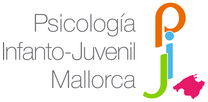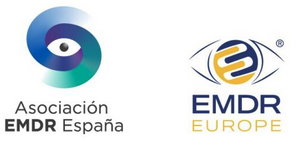
This is the acronym that defines attention deficit hyperactivity disorder (ADHD), a neurobiological disorder characterised by three main symptoms, the two mentioned above plus impulsivity. It is not an acquired disorder at some point in the individual’s life, i.e. it begins in childhood and often continues into adulthood. It involves a combination of persistent symptoms that cause difficulties or problems in different areas of the individual’s life. What happens to people affected by ADHD is usually the following:
- They are usually impulsive, both behaviourally and emotionally.
- They tend to be disordered and may find it difficult to establish priorities.
- They find it difficult to manage time and plan.
- They may show difficulties when carrying out a task or activity, especially if it is of long duration or if it requires a lot of concentration.
- Multitasking or multitasking can be a problem for them, as they have to make a great effort to complete them.
- To start and finish tasks or activities can be a challenge for them.
- They show excessive activity or restlessness, both physical and emotional.
- They show frequent mood swings.
- They tend to have an irascible temperament.
- They show low frustration tolerance.
- They may show deficits in stress management.

On the other hand, people with ADHD often have difficulties in managing social skills and a low level of development in communication skills, some also have low self-esteem, and some have experienced frequent break-ups, as well as having complicated social relationships with parents, authority figures such as bosses or teachers, and peers and friends.
How can ADHD symptoms affect a relationship?
In all relationships there are problems or difficulties, but in couples where ADHD is present the following may occur:
- Problems with organisation, planning and memory contribute to the appearance of other problems, as these lead to unfinished tasks or activities, which can easily lead to arguments.
- Impulsive behaviour, due to a lack of regulation between the impulse to perform a behaviour and the ability to reflect on the consequences beforehand, is a frequent occurrence.
- There may be poor communication, as a consequence of a lack of social skills, and if this is the case, it is important to address it. If the person with ADHD finds it difficult to initiate conversation, it would be advisable for the partner to do so.
- Emotional sensitivity and overreaction are often present in people with ADHD, they can be easily offended, angry and hurt, as they respond almost automatically to the slightest change in their environment, both physical and emotional.
These behaviours can ultimately create disappointment, anger, feelings of incomprehension and even that the person feels undervalued or not listened to, so it is important to be aware of them and take them into account to avoid all of the above.

What strategies can we use to maintain a good relationship?
Both the person with ADHD and his/her partner must learn and deal with it from the beginning of the relationship using appropriate strategies such as the following:
- Knowledge is the first step to understanding, so both the person with ADHD and his/her partner should find out what the disorder is like in order to understand each other and thus have a better relationship.
- Communicate directly and sincerely, avoiding reproaches, encouraging the development of listening skills and improving self-control.
- In addition to personal and independent moments, it is advisable to often have exclusive moments to share as a couple. Moreover, demonstrations of affection and care and expressing appreciation and gratitude on a daily basis are indispensable for the couple.
- Hobbies, likes and interests generate curiosity in the couple and that is why it is important to create spaces for sharing, and if you have different hobbies, taking an interest in your partner’s hobbies, even if only by asking and listening, without the need to carry them out, is a very positive thing.
- The concept of unconditionality in a couple promotes irresponsible and selfish attitudes and actions. When the couple is clear that the concept of belonging does not exist and that they have to “earn” each other day by day, they give the best of themselves and make efforts to make the relationship work.
- Creativity, abundant ideas and impulsivity to undertake new projects, emanate very easily in people with ADHD, although most of the time they do not carry them out, or do not start them or do not finish them. This can be a source of conflict within a couple’s relationship, as the person may even want to modify some areas of their life in order to carry out something that they may not finish.
One of the most common problems for which adults with ADHD seek psychological help are relationship problems. In fact, empirical data affirm that they have a higher rate of separation and divorce than those who do not have the disorder. Therefore, couple therapy is recommended with psychoeducational treatment aimed at informing the patient and his or her partner about the causes, symptoms, prognosis and treatment of the disorder. Couple therapy will help both partners to understand what the disorder is and how this deficit is influencing each other and the bond. In addition, both partners will also identify other individual problems that are not necessarily related to ADHD.
If you feel identified with this article or you know someone who may need therapeutic help, do not hesitate to contact us, we will be happy to help you.
Sarah Martínez López
Psychologist Col. N° B-03249








